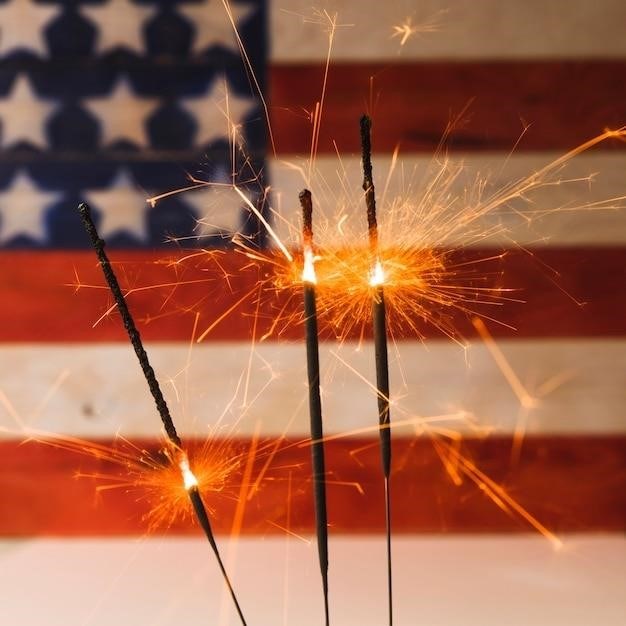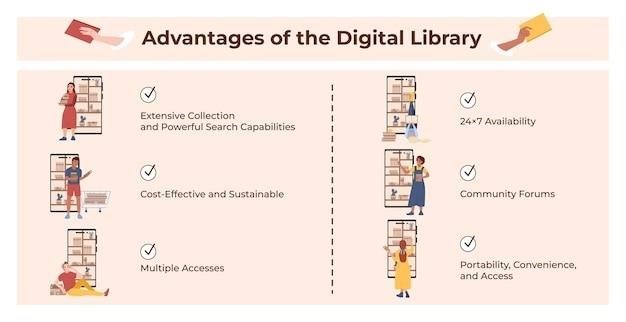Michigan Fireworks Laws 2024
Michigan residents are permitted to use sparklers, smoke bombs, Roman candles, and other consumer-grade fireworks on private property. The Fireworks Safety Act of 2012 made the sale, use, and possession of consumer fireworks legal in Michigan. Consumer fireworks are fireworks that are designed to produce visible and/or audible effects by combustion, such as firecrackers, Roman candles, and bottle rockets.
Introduction
Michigan’s fireworks laws have undergone significant changes in recent years, allowing for the sale and use of consumer fireworks within the state. The Fireworks Safety Act of 2012, officially known as Public Act 256 of 2011, legalized the purchase, possession, and use of consumer fireworks in Michigan, marking a shift from previous regulations that restricted fireworks to professional displays. This act, however, introduced a complex framework for regulating fireworks, encompassing safety guidelines, restrictions on usage, and local ordinances. The 2011 act aims to ensure a balance between providing residents with the opportunity to enjoy fireworks while prioritizing safety and public well-being. This comprehensive framework extends to both consumer fireworks and low-impact fireworks, outlining the legal parameters for their sale, possession, and usage. The legislation also establishes specific guidelines for local municipalities to regulate fireworks within their jurisdictions, allowing for tailored regulations based on local needs and concerns.
Legal Framework
The legal framework surrounding fireworks in Michigan is primarily governed by the Fireworks Safety Act of 2011 (Public Act 256 of 2011), which established a comprehensive regulatory system for the sale, possession, and use of consumer fireworks. This legislation defines various categories of fireworks, including consumer fireworks, low-impact fireworks, novelty fireworks, and agricultural and wildlife fireworks. It also outlines requirements for retailers selling fireworks, including obtaining a certificate from the state and complying with age restrictions for sales. The act further empowers local units of government to enact ordinances regulating the ignition, discharge, and use of consumer fireworks within their jurisdictions. These ordinances may prescribe specific hours for fireworks usage, restrict locations where fireworks can be ignited, and impose other safety regulations. Notably, the act prohibits the use of consumer fireworks on public property, school property, church property, or the property of another person without their express permission. It also prohibits the sale of consumer fireworks to minors.
Fireworks Safety Act of 2011
The Fireworks Safety Act of 2011 (Public Act 256) serves as the cornerstone of Michigan’s fireworks regulations. It aims to balance the public’s desire for safe and responsible use of consumer fireworks with the need to mitigate potential risks. The act established a comprehensive framework for the sale, possession, and use of various categories of fireworks, including consumer fireworks, low-impact fireworks, novelty fireworks, and agricultural and wildlife fireworks. It also outlines requirements for retailers selling fireworks, including obtaining a certificate from the state and complying with age restrictions for sales. The act further empowers local units of government to enact ordinances regulating the ignition, discharge, and use of consumer fireworks within their jurisdictions. These ordinances may prescribe specific hours for fireworks usage, restrict locations where fireworks can be ignited, and impose other safety regulations. Notably, the act prohibits the use of consumer fireworks on public property, school property, church property, or the property of another person without their express permission. It also prohibits the sale of consumer fireworks to minors. The act’s purpose is to promote public safety by regulating the sale, possession, and use of fireworks while also allowing individuals to enjoy the traditional celebration of fireworks.
Consumer Fireworks
Consumer fireworks, as defined by the Michigan Fireworks Safety Act, encompass a wide range of pyrotechnic devices designed to produce visual and auditory effects through combustion. These include popular options like firecrackers, Roman candles, bottle rockets, and other similar items. The act legalized the sale, possession, and use of consumer fireworks within Michigan, subject to specific regulations. The act mandates that anyone selling consumer fireworks must obtain a certificate from the State of Michigan, which must be prominently displayed at the retail location. This certification process aims to ensure that retailers adhere to safety standards and comply with legal requirements. It is also unlawful to sell consumer fireworks to minors. While consumer fireworks are legal in Michigan, their use is subject to specific restrictions and safety guidelines. These restrictions include prohibiting the use of consumer fireworks on public property, school property, church property, or private property without the owner’s consent. Additionally, local units of government have the authority to enact ordinances further regulating the use of consumer fireworks within their jurisdictions. These ordinances may impose specific hours for fireworks usage, restrict locations where fireworks can be ignited, and establish other safety measures.

Low-Impact Fireworks
Low-impact fireworks, as defined in Michigan legislation, represent a category of pyrotechnic devices that produce less intense visual and auditory effects compared to traditional consumer fireworks. Examples of low-impact fireworks include ground-based sparkling devices, handheld sparklers, and other similar items. These fireworks are legal for sale and use in Michigan, subject to specific regulations. Unlike consumer fireworks, which require a state-issued certificate for retailers, individuals selling low-impact fireworks are only required to register on the state’s website. This registration process aims to ensure that retailers of low-impact fireworks are aware of safety guidelines and comply with relevant legal requirements. The legality of low-impact fireworks in Michigan reflects a balance between allowing individuals to enjoy pyrotechnic displays while minimizing potential risks associated with more powerful fireworks. However, it’s essential to remember that even low-impact fireworks should be handled with caution and used responsibly.
Novelty Fireworks
Novelty fireworks constitute a distinct category of pyrotechnic devices that are specifically designed for entertainment purposes, generating minimal visual or auditory effects. Examples of novelty fireworks include sparklers, snakes, snaps, and poppers. These items are legal for sale and use in Michigan and are not subject to the regulations outlined in the Michigan Fireworks Safety Act. This exemption from regulation is due to the relatively low risk associated with these fireworks, as they typically produce minimal noise and limited visual effects. However, it’s important to note that even novelty fireworks require responsible handling and adherence to safety guidelines. Parents and guardians should always supervise children when they are using novelty fireworks, and it’s essential to follow the manufacturer’s instructions for safe usage. While novelty fireworks are generally considered safe, it’s always advisable to exercise caution and prioritize safety when handling any type of pyrotechnic device.
Fireworks Safety Fees
The Michigan Fireworks Safety Act mandates the imposition of fireworks safety fees on retailers of consumer fireworks and low-impact fireworks. These fees are levied to support the administration and enforcement of fireworks safety regulations within the state. The amount of the fee is determined by the gross retail income generated from the sale of consumer fireworks and low-impact fireworks, calculated on a per-transaction basis. The fee structure is tiered, with different rates applied based on the date of sale. This tiered system aims to ensure a consistent and equitable approach to the collection of these fees. The fireworks safety fees are collected by the Michigan Department of Treasury and are used to fund various programs and initiatives related to fireworks safety. These programs may include public education campaigns, firefighter training, and the enforcement of fireworks regulations. The collection of fireworks safety fees is crucial for maintaining a safe and responsible environment for the use of consumer fireworks in Michigan. By supporting these programs, the state can effectively address the potential risks associated with fireworks while promoting responsible and enjoyable celebrations.
Local Regulations
While Michigan law allows for the use of consumer fireworks, local municipalities retain the authority to enact ordinances that further regulate the discharge and use of fireworks within their jurisdictions. These local regulations can vary considerably, so it’s essential for residents to familiarize themselves with the specific rules in their city, township, or village. Local ordinances may address factors such as permissible hours for fireworks use, designated areas where fireworks are allowed or prohibited, and the types of fireworks permitted. For example, some municipalities may restrict the use of certain types of fireworks, such as bottle rockets, or limit the hours of use to specific dates or periods. These local regulations aim to ensure the safety of residents and minimize disturbances caused by fireworks. It is crucial for residents to be aware of and comply with these local ordinances to avoid any potential violations or penalties. Before planning any fireworks displays, it is recommended to contact the local government or law enforcement agency to obtain the most up-to-date information on local regulations and restrictions.
Permits for Fireworks Sales
In Michigan, individuals or businesses seeking to sell consumer-grade fireworks must obtain a permit from the state. The application process for a consumer fireworks certificate is open from January 1st to April 1st annually, with applications closing at midnight on April 1st. The state of Michigan requires that all retailers of consumer fireworks be certified by the state and prominently display their certificate at the retail location; This certification process ensures that retailers comply with safety regulations and legal requirements. Retailers of low-impact fireworks, such as ground sparkling devices and handheld sparklers, must also register with the state before selling these products. This registration process helps the state track the sale and distribution of these fireworks and ensures compliance with safety guidelines. The requirement for permits and certifications for fireworks sales is designed to regulate the industry, promote safety, and protect consumers from potential risks associated with fireworks.
Fireworks Usage Restrictions
Michigan law imposes restrictions on the use of fireworks to ensure public safety and minimize potential hazards. The use of consumer fireworks is prohibited on public property, including parks, schools, and church grounds, without the express permission of the property owner; Fireworks are also prohibited from being used on the property of another person without their explicit consent. This restriction aims to prevent unauthorized use of fireworks in areas where it could pose a risk to people or property. Additionally, local governments in Michigan have the authority to enact ordinances regulating the ignition, discharge, and use of consumer fireworks within their jurisdictions. These ordinances may prescribe specific timeframes during which fireworks can be used, such as prohibiting their use during certain hours or days. The state law allows municipalities to enact ordinances that restrict the use of consumer fireworks between June 29th and July 4th from 11 a.m. to 11⁚45 p.m. These restrictions reflect the state’s commitment to balancing the enjoyment of fireworks with the need for safety and order within communities.
Safety Tips
While Michigan law allows for the use of consumer fireworks, it’s crucial to prioritize safety to prevent injuries and property damage. The Michigan Fireworks Safety Act emphasizes the importance of responsible use and provides guidance on minimizing risks; Always keep a readily available source of water nearby, such as a connected hose, to extinguish any accidental fires. It’s essential to have a designated adult present who is sober and responsible for overseeing the handling and use of fireworks. Avoid using fireworks under the influence of alcohol or controlled substances, as this can impair judgment and increase the risk of accidents. Always use fireworks in a clear, open area away from flammable materials like dry grass, trees, and buildings. Never attempt to re-ignite fireworks that have malfunctioned or failed to ignite. Instead, safely douse them with water and dispose of them properly. Never point fireworks at people, animals, or structures, and ensure they are only ignited on a stable, flat surface. After the fireworks have been used, ensure they are completely extinguished before discarding them in a safe location. By following these safety tips, you can enjoy a safe and enjoyable fireworks experience while protecting yourself, your loved ones, and your surroundings.


